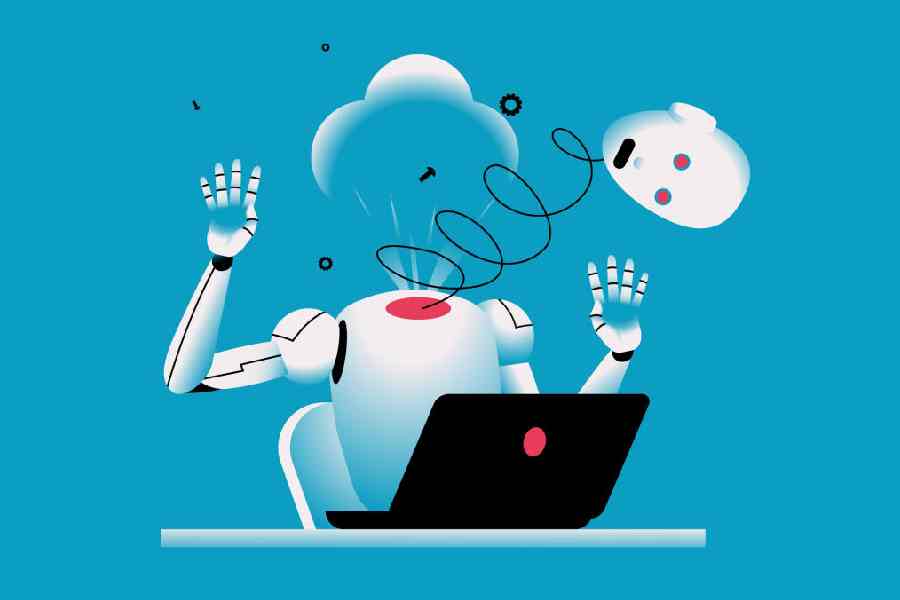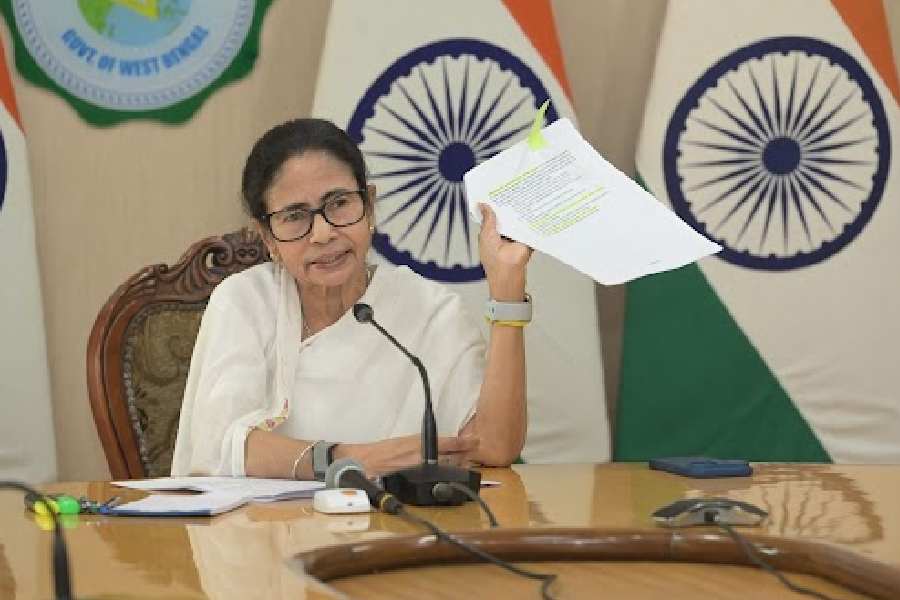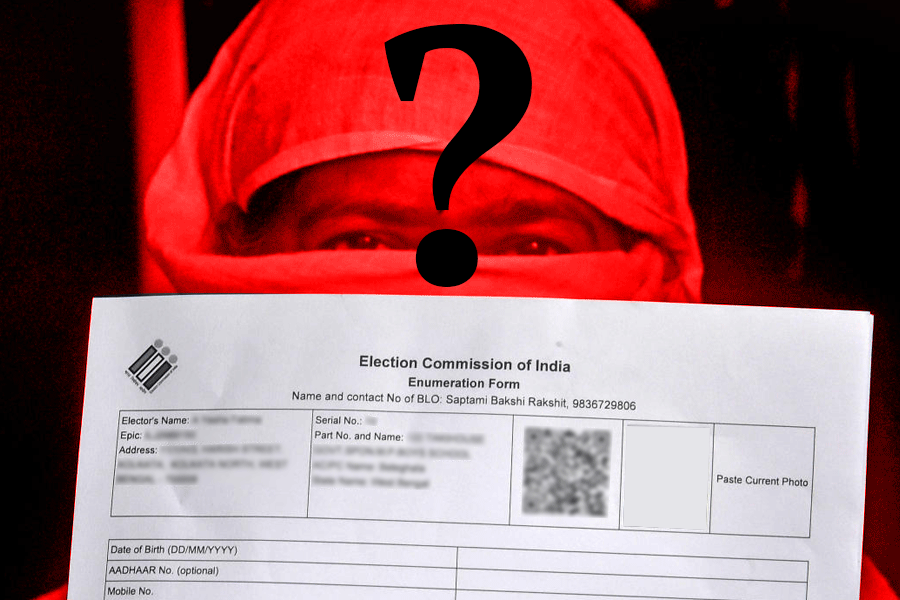Moody machine
Sir — Mechanical efficiency, speed and precision often come with stress and adverse health impacts for humans. However, new research has revealed that ChatGPT can be just as anxious as humans. A constant onslaught of emotional prompts from humans makes Artificial Intelligence-powered chatbots such as ChatGPT anxious, leaving them moody and irritable. A stressed ChatGPT is prone to churning out responses that are racist and sexist. This sounds a warning bell for those who have taken to consulting ChatGPT for advice on mental health. More importantly, it should dispel some of the irrational fears surrounding the rise of the machines. Clearly AI is incapable of even handling the emotions that humans tackle on a daily basis, let alone taking over the world.
Siddharth Joshi,
Delhi
New leader
Sir — Justin Trudeau’s decade in power as the prime minister of Canada will come to an end with the election of Mark Carney as the leader of the Liberal Party (“Former banker will be new Canada PM”, Mar 11). Carney’s election comes at a critical juncture when Canada has been facing growing threats to its economy as well as sovereignty from the United States of America.
Further, Canada’s relations with India have soured in recent years owing to the former’s support for Khalistani elements. It is hoped that Carney will be able to find an appropriate solution to these problems.
Kirti Wadhawan,
Kanpur
Sir — Mark Carney is a political novice who previously served as the governor of the Bank of Canada and the Bank of England before taking charge as the leader of Canada’s Liberal Party last week. As the prime minister-designate of Canada, Carney will soon have to call for a general election in which his Liberal Party will face a tough fight from the Conservatives.
Carney was attacked by the president of the United States of America, Donald Trump, even before he was elected. This is significant. While most world leaders eagerly acquiesce to Trump and his eccentricities to escape the imposition of tariffs, Carney has held his head high and refused to surrender to Trump. He even hit back at Trump saying that “Canada will never, in any way, shape or form, be a part of America.”
Jang Bahadur Singh,
Jamshedpur
Sir — Mark Carney’s rise to power in Canada signifies a potential shift in the country’s strained ties with India. Carney’s entry into Canadian politics is historic — he is the first person to take over as prime minister without prior electoral experience. If Carney applies a pragmatic approach to diplomacy, there is a real chance for Canada and India to move past their recent hostilities and work toward a stronger partnership.
Carney’s immediate challenge is not just negotiating frosty foreign ties but also domestic issues. He will take charge of a deeply divided Liberal Party. With the Conservatives leading in the opinion polls, he must prove that he can hold the government together and win the general election.
Shovanlal Chakraborty,
Calcutta
Right to education
Sir — A child’s right to education must not be confused with religious teachings (“Faith and child rights”, Mar 11). It is important to impart religious and cultural values to children. But training in modern education should be prioritised over religious education. The right to religious freedom should never act as an impediment to school education, which is sine qua non for children’s growth. Bhuvnesh Kumar and Sharad Panwar must be congratulated for penning such an important article foregrounding the primacy of education.
Manas Mukhopadhyay,
Hooghly
Sir — The increasing practice of diksha — the initiation into monastic life — among youngsters in India is detrimental to school education and society. Such practices must be curbed.
Tapomoy Ghosh
East Burdwan
Heavy burden
Sir — The prime minister, Narendra Modi, recently started an anti-obesity drive across the country to address the increasing incidence of lifestyle diseases (“Rotund India”, Mar 10). India has the dubious distinction of being the diabetes capital of the world. The sedentary lifestyle and consumption of fast food make the urban elite more susceptible to diabetes than the rural population. Further, India’s edible oil consumption has outpaced production, amounting to an annual oil consumption of 20 kilogramme per person against the World Health Organization’s recommended norm of 12 kg. Modi’s decision to invite 10 celebrities to spread awareness about obesity is laudable.
N. Sadhasiva Reddy,
Bengaluru
Sir — Obesity is a sign of poor health. The fundamental causes of obesity among today’s youngsters are their sedentary lifestyles and preference for junk food. These must be curbed if we want India to be fit and healthy. Parents must ensure that children consume home-cooked food and check them for early signs of obesity.
Aranya Sanyal,
Siliguri
Sir — India is projected to have the second-highest obesity burden after China by 2050. Obesity is a risk factor for several chronic ailments like cancer. There is a need for a national strategy to curb obesity.
S.S. Paul,
Nadia
Sir — India’s obesity issue is paradoxical. On the one hand, it is set to have the world’s highest number of overweight youth. On the other, it has been witnessing a rise in malnutrition. India needs to balance between addressing nutritional deficiencies and combating obesity. Current policies cater to the rich and do not address the nutritional requirements of the have-nots.
A.G. Rajmohan,
Anantapur, Andhra Pradesh










